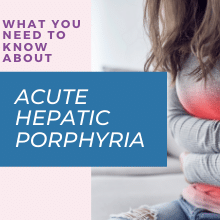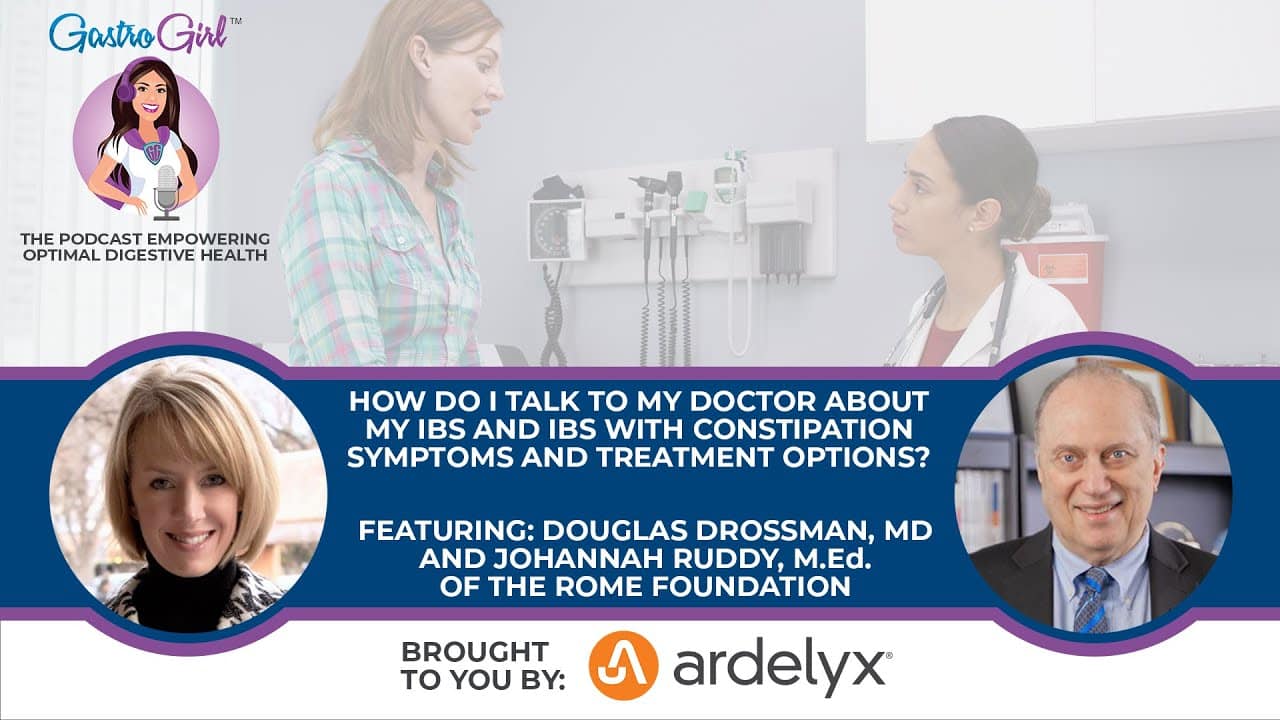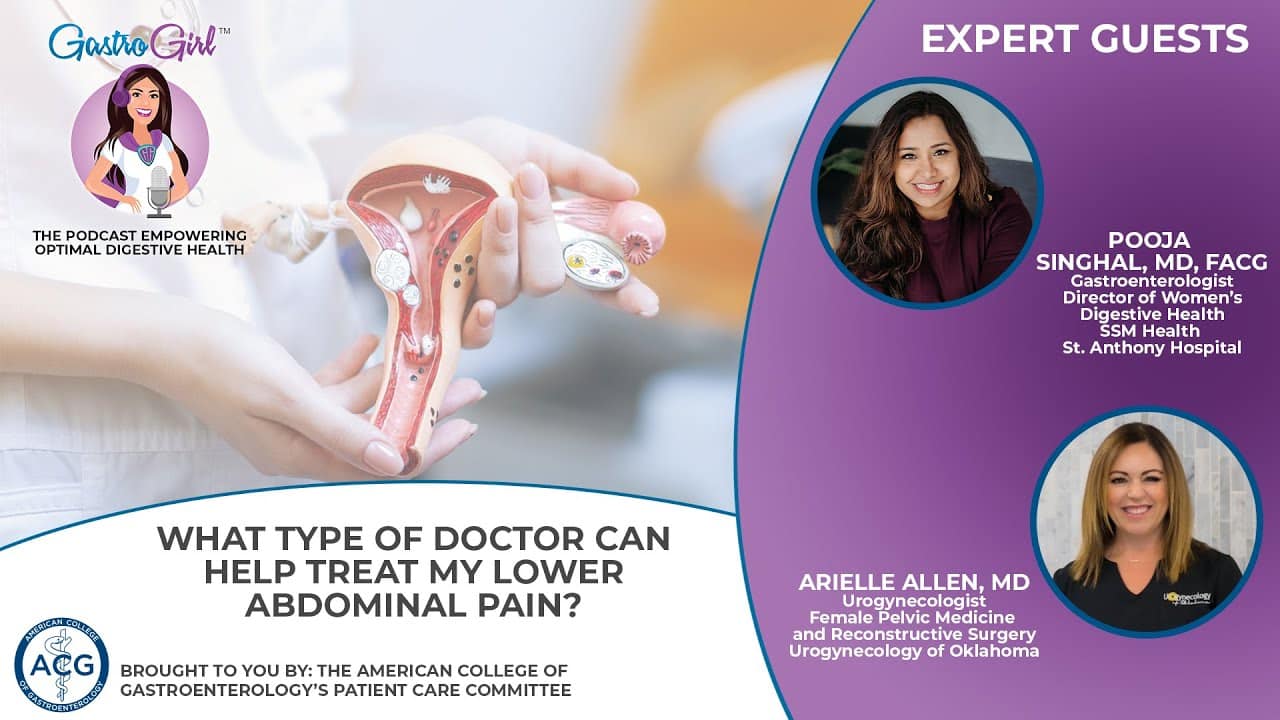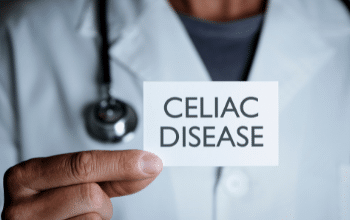How Chronic GI Symptoms Can Mask a Rare Disease Like Acute Hepatic Porphyria
This year, Porphyria Awareness Week is April 10-17!
In order to help educate about this condition, we were thrilled to have two very special guests on the Gastro Girl Podcast to focus on acute hepatic porphyria (AHP).
Dr. Angelika Erwin, a board‐certified clinical geneticist and internist, provides her expert insights on treating patients with AHP.
Nicole, an AHP ambassador, shares her first-hand account of living with AHP and provides inspiration for others who are struggling to get diagnosed.
Read on to learn more about AHP and be sure to listen to the podcast to hear the full interviews with Dr. Erwin and Nicole!

What is AHP?
Acute hepatic porphyria (AHP) refers to a family of rare genetic diseases that can lead to an increase in the production of pigments called porphyrins. Porphyrins are needed by the body to make many important substances, such as hemoglobin, which carries oxygen in the blood.
What are the symptoms of AHP?
Dr. Erwin tells us that AHP is “characterized by potentially life-threatening, acute attacks”. For those who experience chronic attacks, AHP can be debilitating and significantly impact the person’s quality of life.
According to Dr. Erwin, an AHP attack typically causes “episodes of severe abdominal pain” that “ofen is a burning and very severely painful sensation all over the abdomen.” Additionally, nausea and vomiting is common.
Abdominal pain was the first symptom for AHP ambassador, Nicole. As she recounts her first AHP attack, Nicole says “I literally thought I was going to die. The pain just came crashing down.” Nicole recalls that she was walking her dog at the time. Her abdominal pain was so bad that she crawled to a field on the side of the road and laid down.
AHP is also characterized by back pain, chest pain, and pain in the limbs. Dr. Erwin explains that some people report insomnia and anxiety at the start of an acute attack. Others may also experience neuropathy (tingling and numbness in hands and feet), severe fatigue, and muscle weakness.
Nicole has Acute intermittent porphyria (AIP) and in addition to the severe abdominal pain, her symptoms also include neck pain and “stabbing” chest pains.
Who can develop AHP?
Dr. Erwin tells us that “AHP can affect people of all races and ethnicities” and “it can affect people of all ages and genders”. But “most cases are seen in women between the ages of 15 and 45.”
While AHP is considered rare overall, there are four types of AHP (listed below from most common to extremely rare):
- Acute intermittent porphyria (AIP)
- Variegate porphyria (VP)
- Hereditary coproporphyria (HCP)
- ALAD-deficiency porphyria (ADP)
How is AHP diagnosed?
The two most common ways that AHP is diagnosed are by a urine test and a genetic test.
AHP is not commonly known and the symptoms can mimic many other conditions. Because of this “diagnosis can be delayed by up to 15 years in many cases”, says Dr. Erwin.
Nicole went through 12 grueling years of seeing various specialists, undergoing 9 abdominal surgeries (including an unnecessary hysterectomy), and being subjected to countless tests before finally getting a diagnosis.
Raising awareness can help others with AHP get diagnosed sooner and avoid having to go through what Nicole experienced. Nicole says that “no one else is going to fight for you” and encourages people to be their own health advocates.
What is the treatment for AHP?
There is currently no cure for AHP, so treatment focuses on management of symptoms and prevention of complications.
Dr. Erwin explains that treatment includes avoiding possible trigger factors such as certain medications, hormones, alcohol, stress, smoking, and fasting. Dr. Erwin says those with AHP should see a porphyria specialist and work with them on a comprehensive treatment plan that includes identifying triggers.
Nicole explains that surgery and certain medications are triggers for her. She also can’t be around second-hand smoke. She tells us that once her healthcare team put a management plan in place, she started to feel better and continued to improve each year.
What to do if you think you have AHP
Dr. Erwin recommends talking to your gastroenterologist or primary care provider if you suspect you may have AHP.
Nicole leaves us with some parting words for those who are struggling:
“Try to have as much confidence as you can to explain what you’re going through, have faith in yourself that you know your body, don’t give up, and ask the hard questions. Because if you don’t, you may not get the answers that you’re looking for.”
About the Podcast Guests
Dr. Angelika Erwin
Dr. Angelika Erwin is a board‐certified clinical geneticist and internist at the Center for Personalized Genomic Healthcare at the Cleveland Clinic. She is also an Assistant Professor of Pediatrics at the Cleveland Clinic Lerner College of Medicine of Case Western Reserve University and Founder/Director of MyGeneticist, a private genetics practice in Miami, FL. Her clinical interests include the porphyrias, and she is a member of the Porphyrias Consortium, comprised of the nation’s foremost experts in porphyria. She also serves as a consultant of Alnylam Pharmaceuticals to help educate about the condition.
Nicole
Nicole is an AHP ambassador who shares her own personal health struggle to get an AHP diagnosis. From multiple surgeries, to coping with the disease, Nicole’s mission is to help encourage others to advocate for themselves by sharing her story.
Nicole was featured on an episode of The Balancing Act, which aired on Lifetime TV, April 12th, 2021. You can watch her segment about her experience living with AHP on The Balancing Act website.
Resources
April 12, 2021
How Chronic GI Symptoms Can Mask a Rare Disease—One Patient’s Journey to an Accurate Diagnosis of Acute Hepatic Porphyria
Symptoms of Acute Hepatic Porphyria (AHP) often resembles those of other diseases including those in the gastrointestinal tract. Severe symptoms can lead to unnecessary surgeries or procedures. Nicole shares her all too common story of enduring years of misdiagnosis and heartbreaking surgeries before she was finally diagnosed with AHP and properly treated. Dr. Angelika Erwin, who specializes in the porphyrias, explains why this rare genetic condition can stump even the most acute medical experts.
April 12, 2021
How Do I Talk to My Doctor About My IBS and IBS with Constipation Symptoms and Treatment Options?
Open communication between patients and their health care providers is vital for accurate and timely diagnosis and treatment, especially for GI conditions like Irritable Bowel Syndrome (IBS) or IBS with Constipation (IBS-C), which often present with multiple symptoms and are impacted by lifestyle factors like diet and stress. In this episode, Dr. Douglas Drossman and Johannah Ruddy of the Rome Foundation return to share their expertise in effective patient-provider communications. They explain why it’s important for patients to clearly describe their symptoms and how patients can communicate with their healthcare providers even when the topic seems embarrassing. This episode also features expert tips on how patients can start the conversation with their healthcare providers about treatment options and alternatives for symptom relief when the patient feels the current treatment plan is not working.
April 12, 2021
What Type of Doctor Can Help Treat My Lower Abdominal Pain?
Gastrointestinal symptoms associated with Irritable Bowel Syndrome (IBS) like bloating, constipation and lower abdominal pain can overlap with or serve as warning signs of other women’s health conditions like endometriosis, ovarian cancer, and pelvic floor disorders that also impact the bladder. But how can women tell what is causing their lower abdominal pain and know what type of doctor can help them find relief? In this episode, we are joined by Dr. Pooja Singhal, a Gastroenterologist and Dr. Arielle Allen, a Urogynecologist, who explain the various signs and symptoms they look for to determine whether lower abdominal discomfort is a GI issue, a pelvic floor issue, or an issue specific to women. The doctors also share some tips for patients so they are better prepared for their next medical appointment in order to help their healthcare provider make the diagnosis quicker and determine the treatment path without delays.
Listen to our
latest Podcast!










